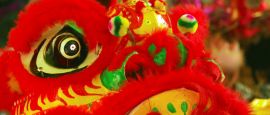Hong Kong Health Care and Vaccinations
| Title | Special precautions |
|---|---|
| Diphtheria |
Sometimes |
| Hepatitis A |
Sometimes |
| Malaria |
No |
| Rabies |
No |
| Tetanus |
Yes |
| Typhoid |
Yes |
| Yellow Fever |
No |
First-class Western medicine is practised in Hong Kong. Most doctors speak English and hotels should have a list of government-accredited doctors and hospitals. Public hospitals in Hong Kong include Princess Margaret Hospital (Lai King Hill Road, Lai Chi Kok, Kowloon), Queen Elizabeth Hospital (Gascoigne Road, Kowloon) and Queen Mary Hospital (Pok Fu Lam Road, Hong Kong Island). See the Hospital Authority website (www.ha.org.hk) for more information. There is also a well-developed private healthcare industry (www.privatehospitals.org.hk) in Hong Kong. Although locals and expats are charged reduced rates at public hospitals, the price for public and private facilities can be very similar for tourists.
Charges are made for all services and treatment, although emergency treatment in casualty departments is free. Travel insurance is a wise precaution, as healthcare bills can be expensive particularly if a hospital stay is required. For emergency medical services, dial 999.
Pharmacies are plentiful throughout Hong Kong, particularly the Watsons and Mannings chains, which can be found in almost every shopping centre. Pharmacists are usually also able to provide advice about minor ailments.
It is not recommended visitors drink the tap water in Hong Kong, unless it has been been boiled or purified first. Milk is pasteurised and dairy products are safe for consumption. Local meat, poultry, seafood, fruit and vegetables are also generally considered safe to eat. As in many countries, it’s safer to avoid raw vegetables, reheated foods and shellfish. Wash fruit unless it has been peeled. Food from street food stalls and hawkers centres is generally considered safe to eat, although it is recommended to eat food that is cooked directly in front of the customer.
Before travelling, visit a doctor or travel health clinic for detailed and up-to-date advice on health risks. Japanese encephalitis may occur in the New Territories between April and October, although it is rare. Immunisation against hepatitis B, diphtheria and tuberculosis is sometimes recommended. Following the severe acute respiratory syndrome (SARS) outbreak of 2003, it has been routine for temperature scanning to be carried out at the airport for new arrivals. In the very unlikely event that your temperature is considered abnormal, further examination may be required.
Air pollution can be an issue in Hong Kong; it is often claimed that the worst of it comes from the Chinese mainland rather than from the island itself. At times, when pollution levels are high, visitors with asthma or other respiratory problems are likely to find that their symptoms are exacerbated.
The risk of catching malaria is extremely low, but dengue fever incidents are on the increase (as in many Southeast Asian cities) – although it still remains uncommon and outbreaks tend to be localised. Dengue fever is (like malaria) spread by mosquitoes, and symptoms include a rash, fever, headaches and pain in muscles and joints. In rare cases the disease can become life-threatening.
There is no vaccine but the risk should be minimised by reducing exposure to mosquito bites, by covering up and using a repellent. Local brands generally include only citronella, so visitors who wish to use DEET-based repellent should bring this with them.
Do you have any Feedback about this page?
© 2026 Columbus Travel Media Ltd. All rights reserved. No part of this site may be reproduced without our written permission, click here for information on Columbus Content Solutions.








 You know where
You know where